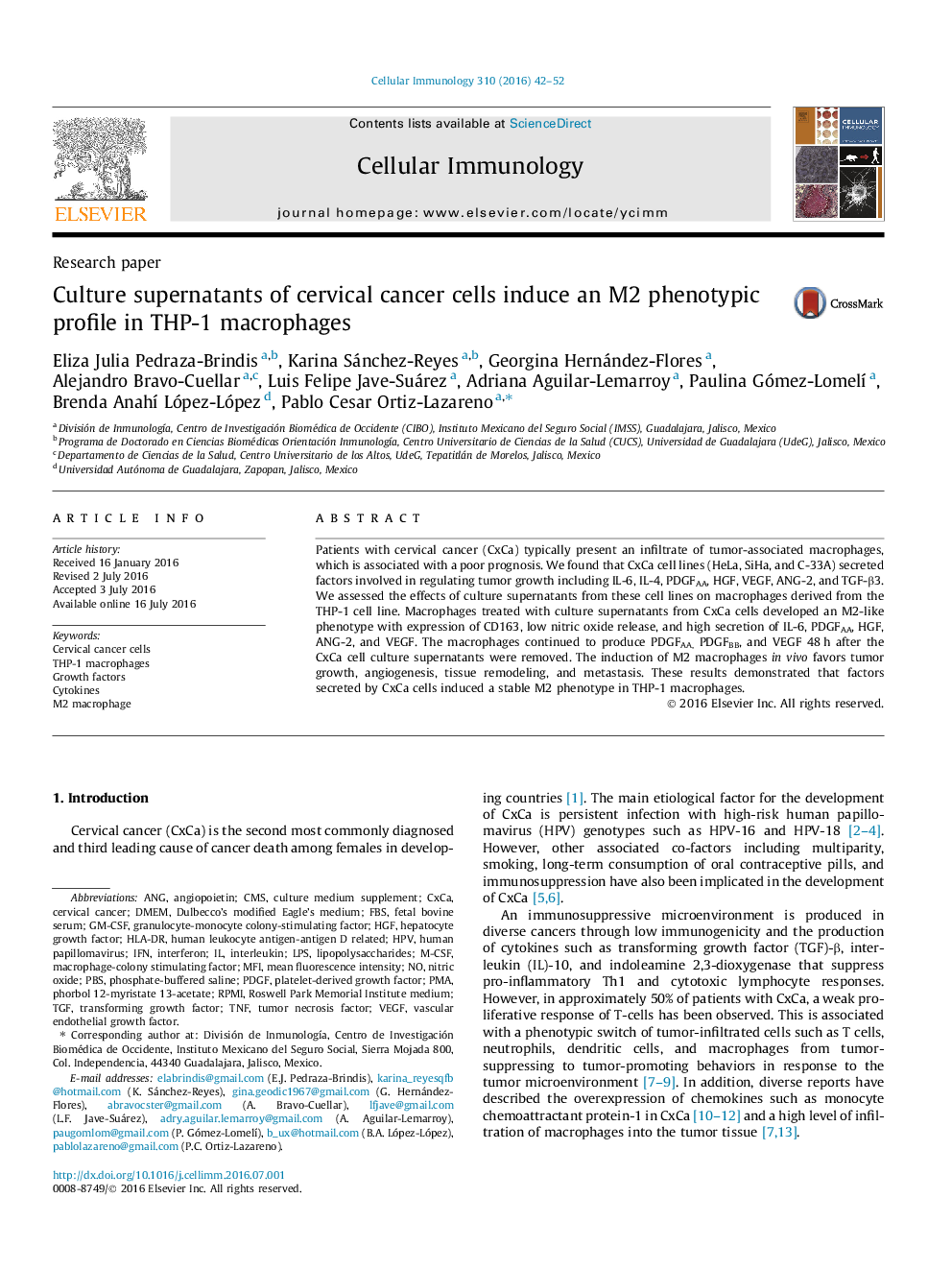| Article ID | Journal | Published Year | Pages | File Type |
|---|---|---|---|---|
| 5530716 | Cellular Immunology | 2016 | 11 Pages |
â¢Patients with cervical cancer (CxCa) present a dense infiltrate of macrophages.â¢The effects of CxCa cell secretions on macrophage behavior are unclear.â¢PDGF, HGF, VEGF, ANG-2, and IL-6 were secreted by CxCa cell lines.â¢THP-1 macrophages were treated with culture supernatants from CxCa cell lines.â¢The macrophages acquired a stable M2-like phenotype and secreted angiogenic factors.
Patients with cervical cancer (CxCa) typically present an infiltrate of tumor-associated macrophages, which is associated with a poor prognosis. We found that CxCa cell lines (HeLa, SiHa, and C-33A) secreted factors involved in regulating tumor growth including IL-6, IL-4, PDGFAA, HGF, VEGF, ANG-2, and TGF-β3. We assessed the effects of culture supernatants from these cell lines on macrophages derived from the THP-1 cell line. Macrophages treated with culture supernatants from CxCa cells developed an M2-like phenotype with expression of CD163, low nitric oxide release, and high secretion of IL-6, PDGFAA, HGF, ANG-2, and VEGF. The macrophages continued to produce PDGFAA, PDGFBB, and VEGF 48 h after the CxCa cell culture supernatants were removed. The induction of M2 macrophages in vivo favors tumor growth, angiogenesis, tissue remodeling, and metastasis. These results demonstrated that factors secreted by CxCa cells induced a stable M2 phenotype in THP-1 macrophages.
